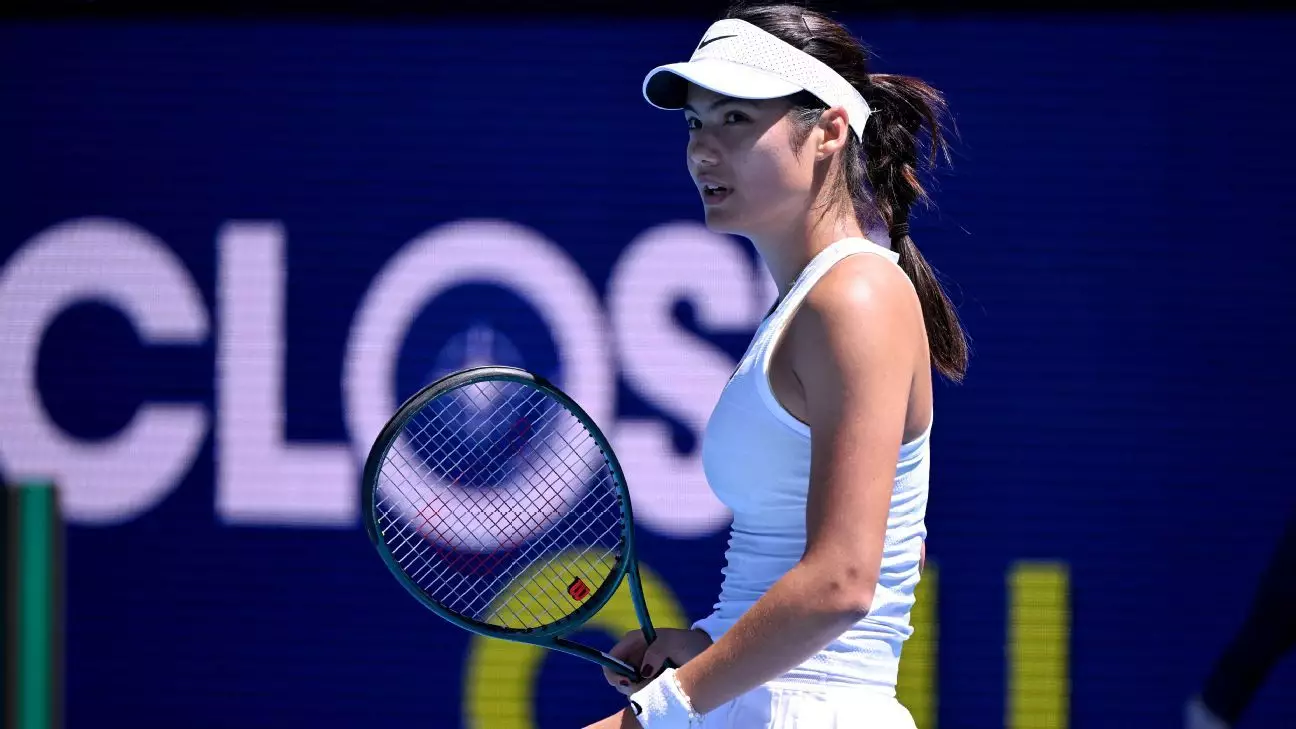Last year, Emma Raducanu withdrew from a highly anticipated mixed doubles match with Andy Murray during his farewell appearance at Wimbledon, causing ripples of concern among fans and analysts alike. This decision, stemming from soreness in her right wrist, not only robbed Murray of a final act on the hallowed grass courts but also triggered a narrative of bad blood between the two rising stars of British tennis. Raducanu’s withdrawal occurred while she was enjoying a commendable performance in the women’s singles, advancing to the fourth round, marking it as one of her strongest showings since her sensational US Open victory in 2021.
Navigating Relationships in Tennis
In the highly competitive arena of professional sports, maintaining relationships can be challenging, particularly when performance, commitment, and health intertwine. Raducanu’s concern over potential animosity with Murray illustrates the burden young athletes often feel when it comes to prioritizing their careers over personal connections. Their relationship, originally marred by Raducanu’s withdrawal, grew increasingly strained in public perception, overshadowed by the context of Murray’s last hurrah at Wimbledon.
However, recent interactions paint a reconciliatory picture. After her impressive second-round victory over Amanda Anisimova at the Australian Open, Raducanu shared that she had reached out to Murray, expressing her regrets over any unintended consequences her decision may have caused. “I sent him a long message basically apologising if I caused any trouble, I guess, at Wimbledon. That’s definitely the last thing I want,” Raducanu recounted, revealing the depth of her respect for Murray and her desire to keep the lines of communication open.
The Path Forward: Embracing Challenges
With both players present at the Australian Open, their relationship has seemingly shifted toward mutual support. Murray’s new role as a coach to Djokovic and Raducanu’s journey as an evolving player highlight a dynamic tennis landscape where collaboration often trumps rivalry. Their interactions suggest a welcome camaraderie that is essential for the personal and professional growth of athletes.
As Raducanu prepares to face world No. 2, Iga Swiatek, she recognizes the importance of managing expectations. “I think you always have the pressure that you put on yourself to perform to your best ability, which is not really going to change, but that’s every match,” she reflected. This introspective approach not only reveals her maturity but also signifies a shift away from external pressures that often influence performance.
Emma Raducanu’s trajectory in professional tennis is laden with both challenges and triumphs. The hurdles of injury and public scrutiny do not overshadow her accomplishments; rather, they illuminate her resilience and determination to forge ahead. The burgeoning respect between her and Murray serves as a reminder that sportsmanship transcends competition, fostering bonds that can withstand the pressures of elite performance. As both athletes continue to navigate their careers, embracing challenges and cherishing their connections, the future of British tennis looks promising and collaborative.

